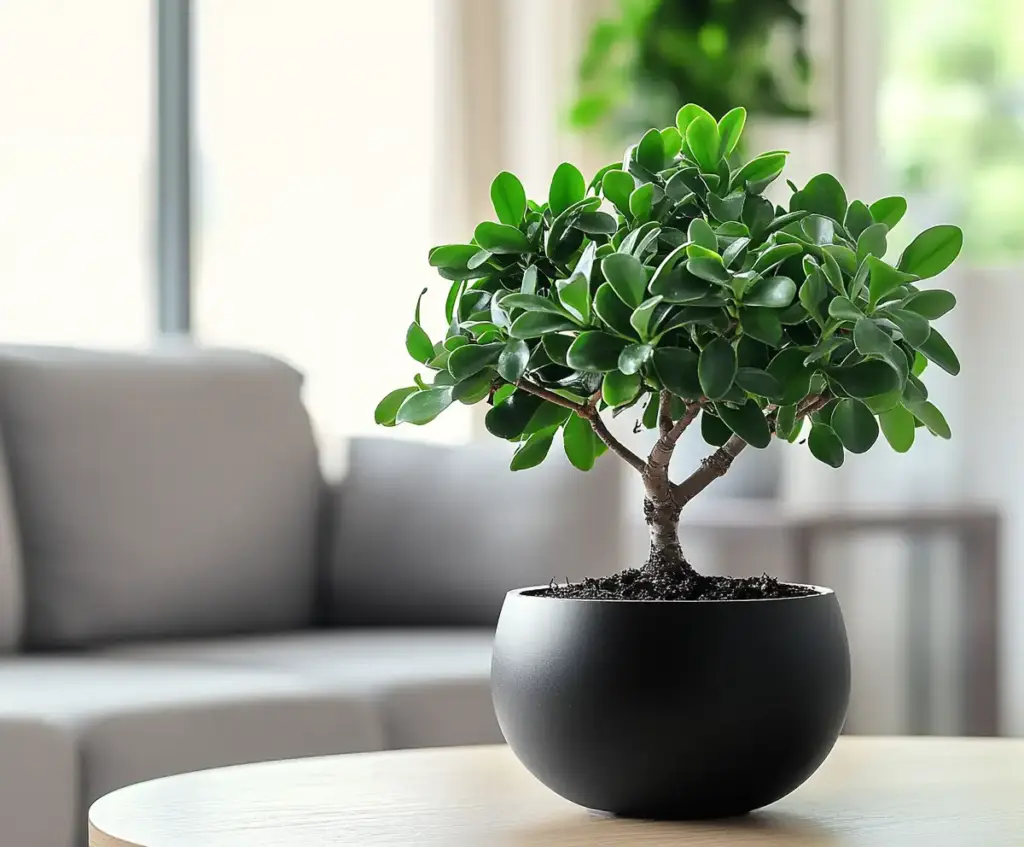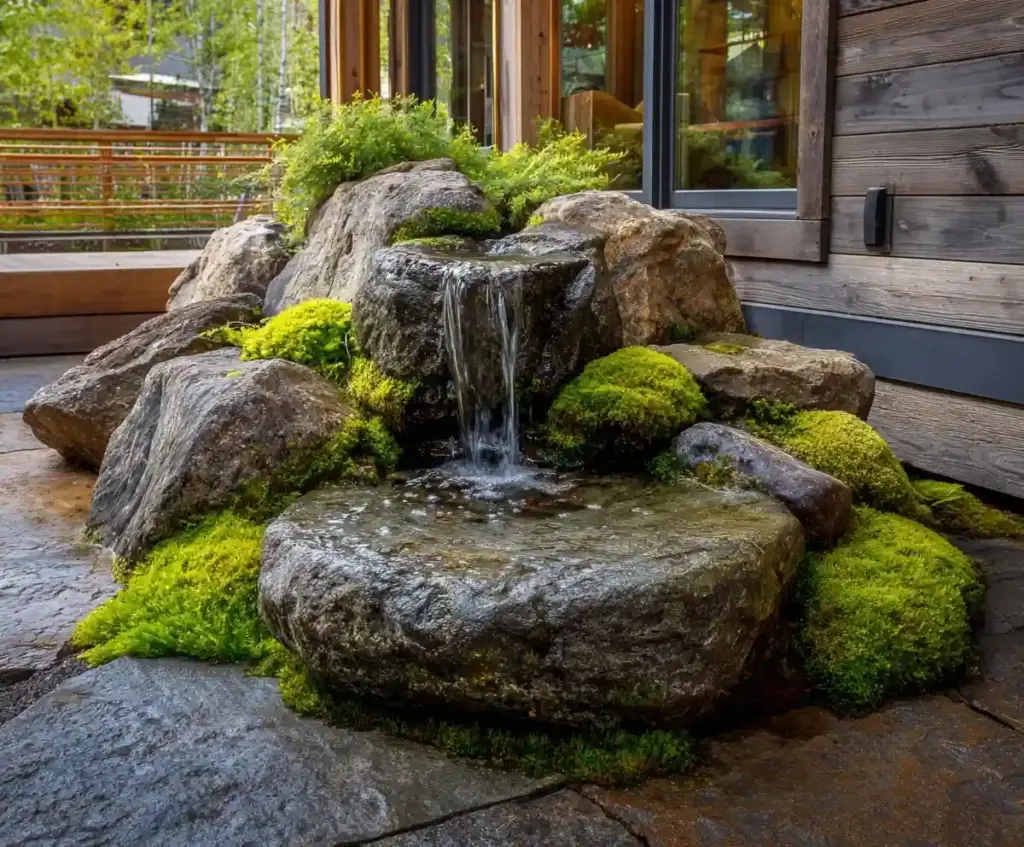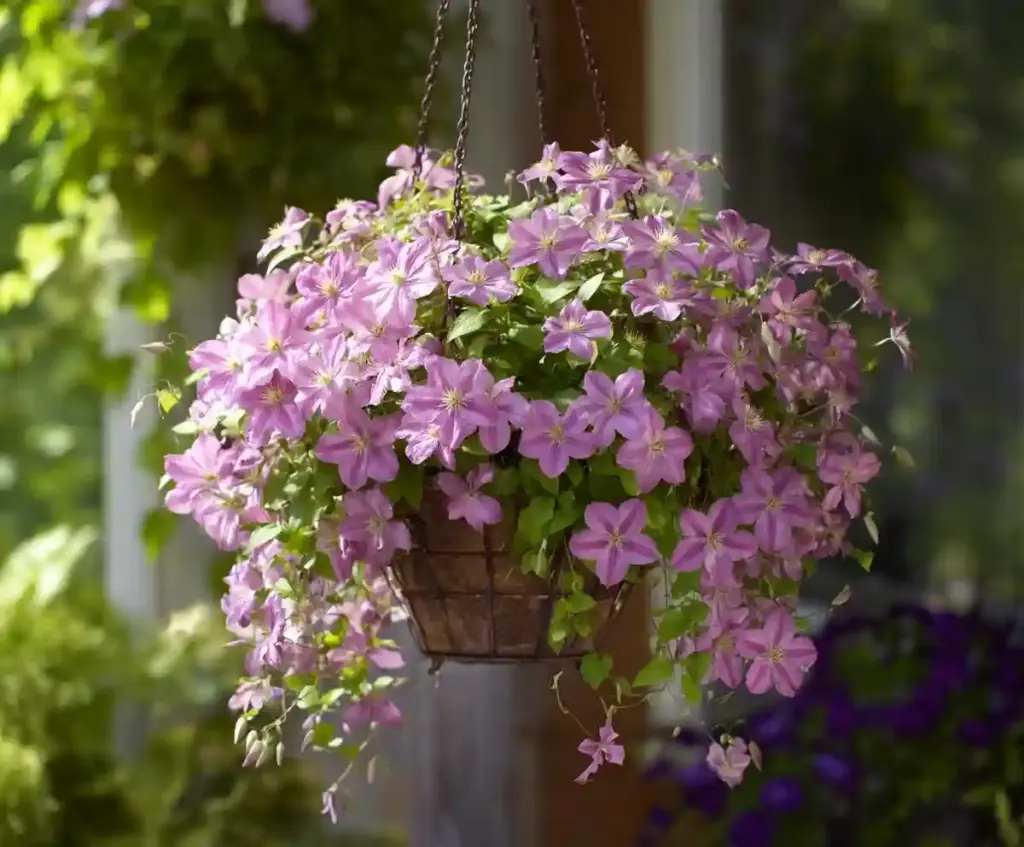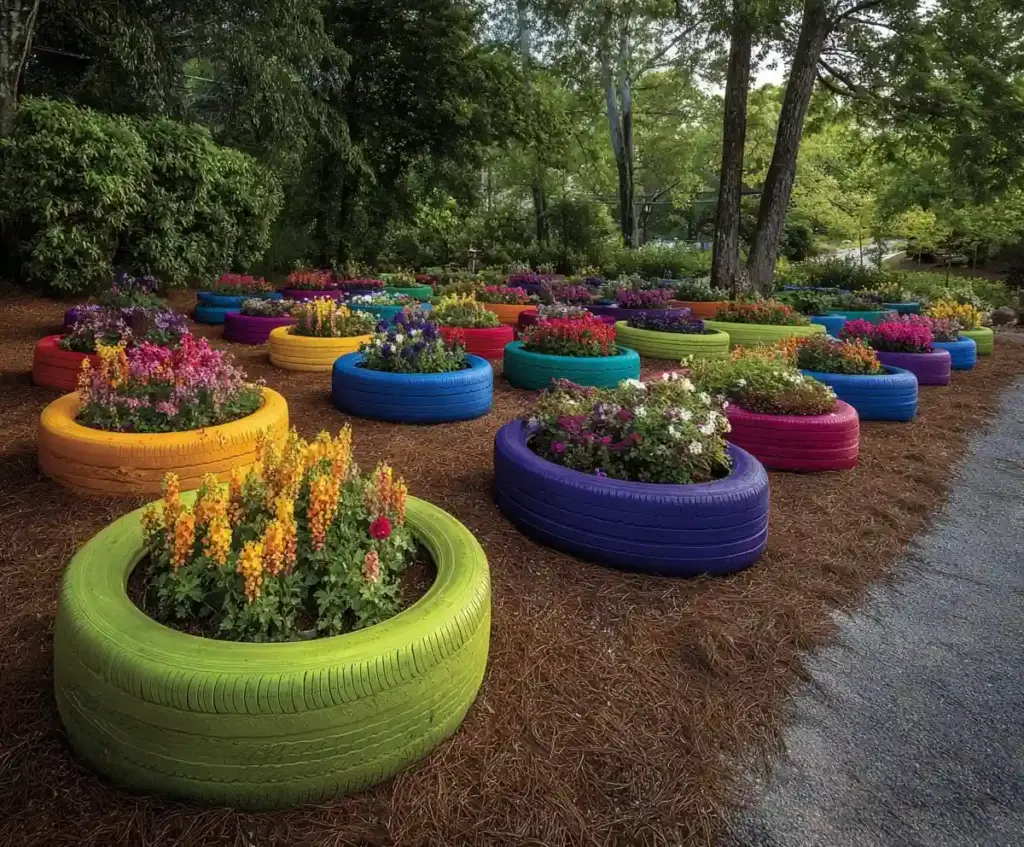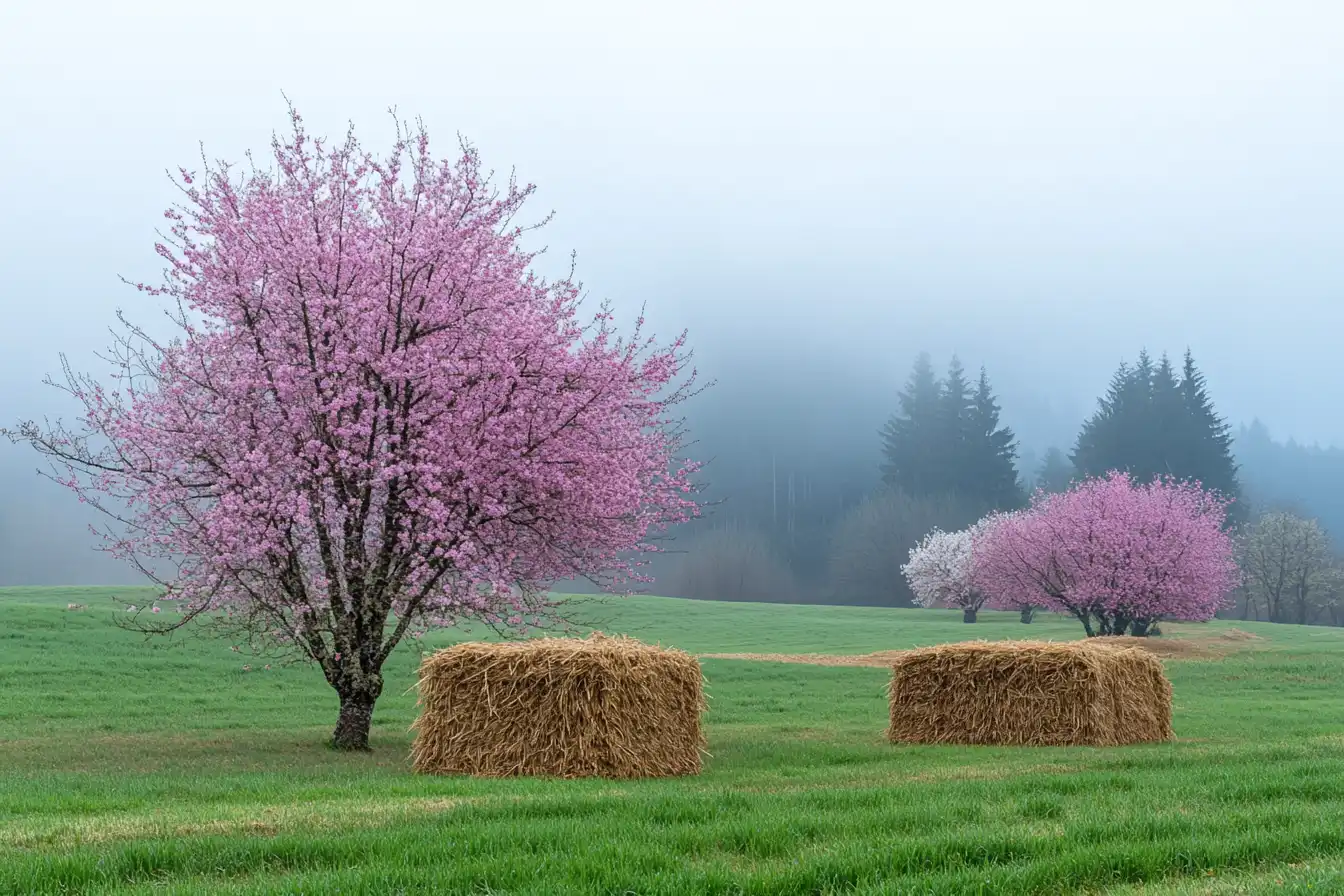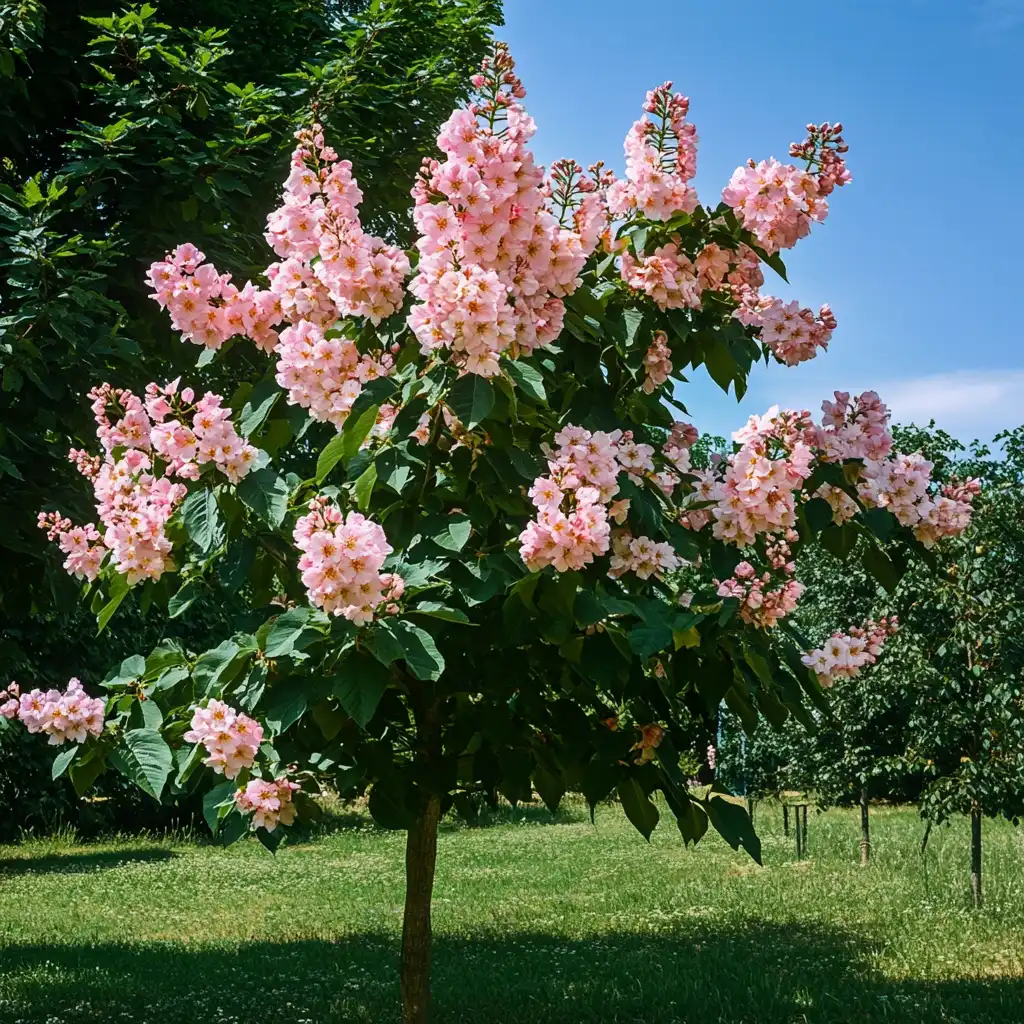Whether you’re trying to block out a neighbor’s view, reduce street noise, or craft a serene outdoor retreat, choosing the best privacy trees for your yard can dramatically elevate both the beauty and function of your landscape. Unlike traditional fencing, which can sometimes appear harsh or utilitarian, privacy trees offer a lush, living barrier that blends seamlessly into any garden design. From urban patios to sprawling backyards, the right tree creates a green screen that feels both welcoming and purposeful.
The advantages of planting privacy trees extend far beyond simple seclusion. They provide seasonal color, welcome pollinators and songbirds, and can significantly enhance your home’s overall curb appeal. In smaller yards, narrow, upright trees like Arborvitae or Juniper work wonders, while larger spaces can accommodate wide-canopied flowering trees that deliver fragrance and showy blooms. Evergreens offer year-round privacy, while deciduous varieties bring seasonal variety with fall foliage and spring flowers.
Whether you’re looking for privacy trees to plant along a fence, fast-growing trees for immediate impact, or low-maintenance options that thrive with minimal care, this guide covers 17 top-rated choices. From creative backyard privacy ideas to long-term screening solutions, these trees are selected to meet a variety of garden sizes, styles, and climate needs.
Table of Contents
🌳 1. Red Buckeye (Aesculus pavia)
Looking for a tree that brings both privacy and early spring drama? The Red Buckeye delivers vivid red flower spikes that are impossible to miss. While it’s a deciduous tree, it’s among the first to leaf out in spring, helping to jump-start your backyard’s transformation into a private haven.
Its neat, rounded canopy reaches a modest 15 to 20 feet in height, making it ideal for planting near fences without overwhelming smaller yards. The structure is compact and symmetrical — perfect for creating a tidy, well-defined screen.
⚠️ Note: This tree is toxic to people, pets, and livestock, so it’s best avoided if you have curious animals or young children nearby.
Why it works as a privacy tree:
- Moderate height with early foliage coverage
- Eye-catching spring blooms that attract hummingbirds
- Naturally rounded shape suits fence lines and narrow spaces
Quick Stats:
- Sunlight: Full sun to partial shade
- USDA Zones: 6–9
- Mature Size: 15–20 ft. tall and wide
- Growth Rate: Moderate
🌳 2. Flowering Crabapple (Malus spp.)
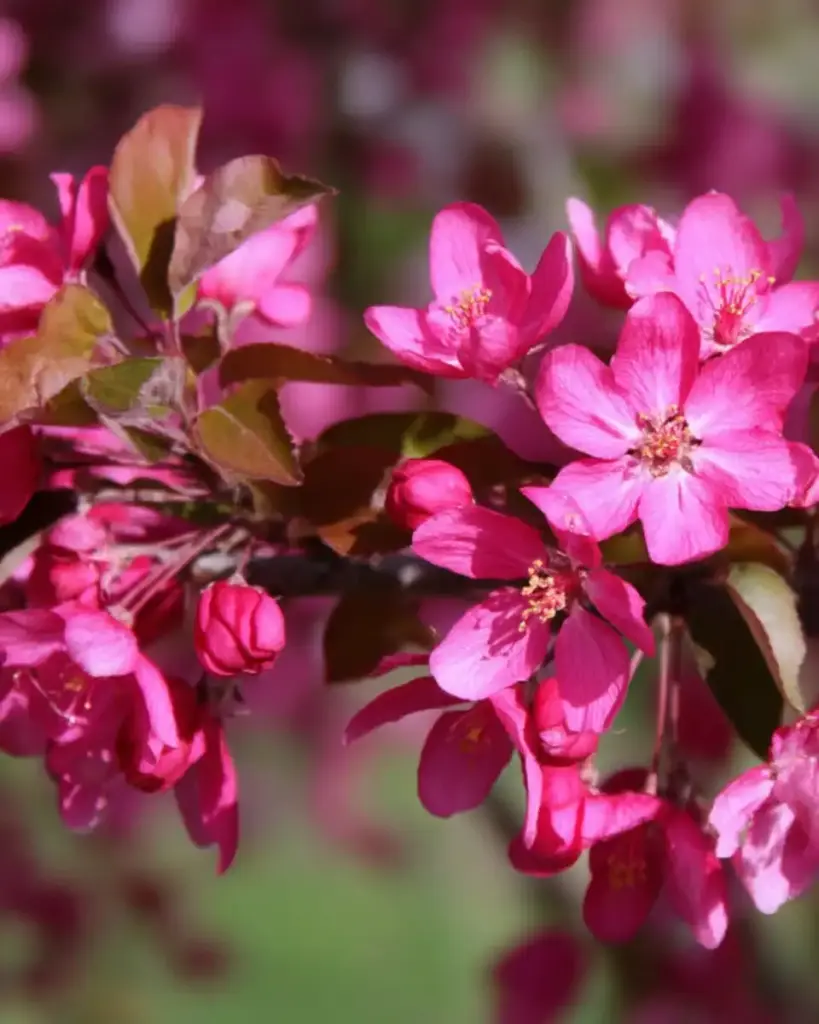
If you’re looking for a privacy tree that’s both practical and a feast for the eyes, Flowering Crabapple fits the bill. This small-to-medium-sized tree offers dense seasonal screening, with vibrant white or pink spring blossoms followed by colorful fall fruit that birds love.
While its canopy isn’t as dense as an evergreen, its 15 to 20-foot height and 12 to 20-foot spread make it excellent for planting in staggered rows or as a flowering focal point near a fence. Plus, many varieties are bred for disease resistance, making maintenance a breeze.
These trees are also ideal if you want to enhance your yard’s biodiversity. Their fruit and flowers attract wildlife, pollinators, and songbirds, all while giving you privacy and visual interest throughout three seasons.
Why it works as a privacy tree:
- Dense canopy offers above-fence coverage
- Spring blossoms, summer greenery, and fall fruit
- Attracts birds and beneficial insects
Quick Stats:
- Sunlight: Full sun
- USDA Zones: 4–8
- Mature Size: 15–20 ft. tall, 12–20 ft. wide
- Growth Rate: Moderate
🌸 3. Flowering Cherry (Prunus serrulata)
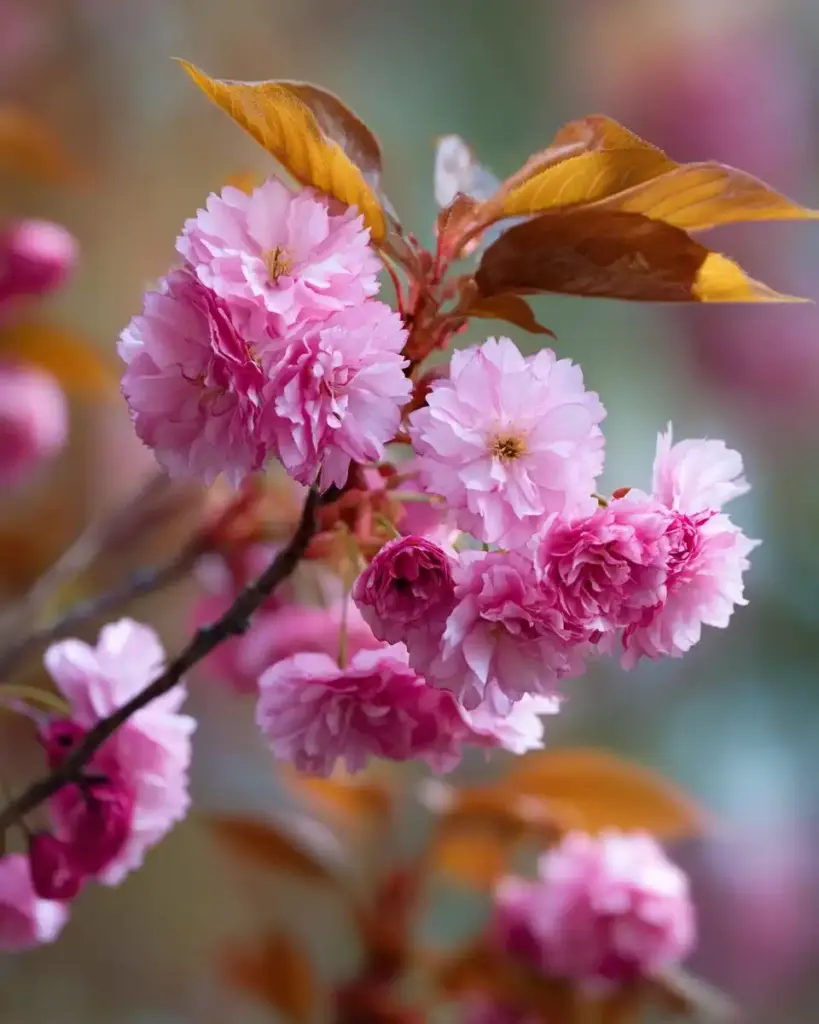
Nothing says spring like the stunning Flowering Cherry, known for its abundant pink or white blossoms that transform any yard into a seasonal showpiece. While its floral display is brief, the effect is unforgettable — and perfect for adding beauty to your privacy line.
These trees typically reach 15 to 25 feet in height, with a soft, rounded canopy that spreads up to 26 feet. While not evergreen, they provide excellent screening in spring and summer, especially when planted in a row. Their fast growth and elegant shape make them a top choice for those who want both seclusion and curb appeal.
Keep in mind, though, that flowering cherry trees have a relatively short lifespan (about 30–40 years) and are toxic to pets, so choose planting locations wisely.
Why it works as a privacy tree:
- Fast-growing with broad seasonal coverage
- Gorgeous spring blooms for visual impact
- Elegant shape complements formal or cottage gardens
Quick Stats:
- Sunlight: Full sun
- USDA Zones: 5–8
- Mature Size: 15–25 ft. tall, 13–26 ft. wide
- Growth Rate: Fast
🌳 4. American Hornbeam (Carpinus caroliniana)
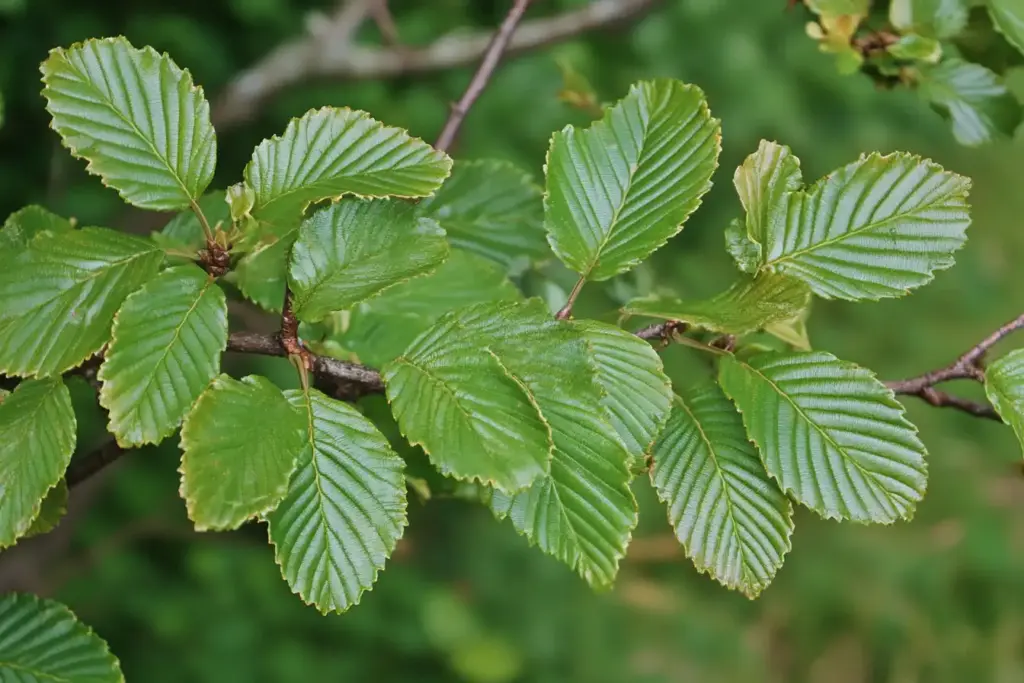
Also known as ironwood or musclewood (thanks to its sinewy, fluted trunk), the American Hornbeam is a fantastic choice for natural fencing that’s both durable and beautiful. Its compact, upright form and 20–35-foot mature height make it a natural fit for long fence lines or property boundaries.
This deciduous tree features blue-gray bark, smooth, understated foliage during the growing season, and show-stopping red and yellow fall color. It’s not just good-looking — it’s low-maintenance, pest-resistant, and thrives in a range of conditions from full sun to full shade.
Though it grows slowly, its upright shape allows it to function beautifully as a layered privacy screen, especially when combined with shrubs or flowering perennials beneath.
Why it works as a privacy tree:
- Naturally narrow canopy fits tight spaces
- Excellent fall color adds seasonal charm
- Tolerates shade, wet soil, and urban environments
Quick Stats:
- Sunlight: Full sun to full shade
- USDA Zones: 3–9
- Mature Size: 20–35 ft. tall, 20–30 ft. wide
- Growth Rate: Slow to moderate
🌳 5. Purpleleaf Plum (Prunus cerasifera)
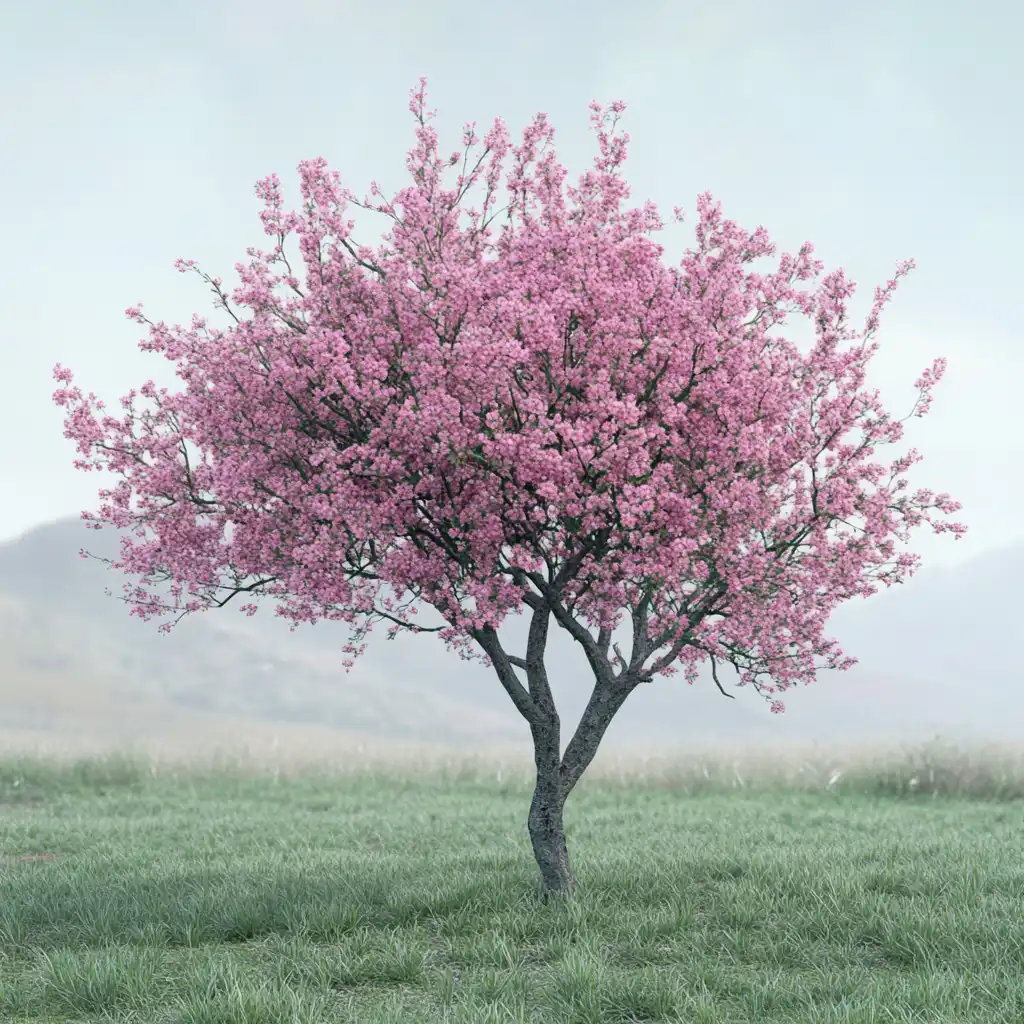
Want to add privacy and bold color contrast to your fence line? The Purpleleaf Plum brings deep, dramatic purple foliage from spring through fall, plus fragrant pink or white blossoms in early spring. It’s one of the few ornamental trees that offer both shade and intense visual appeal.
This deciduous tree matures to 15–25 feet in height, with a rounded canopy that creates an attractive screen above most fence lines. Birds love the small berries it produces in late summer, although you may need to manage occasional fruit drop near walkways.
While not the most long-lived species, it’s a low-maintenance and fast-growing option — perfect for those who want an instant upgrade to both privacy and garden design. Just note that the seeds and foliage are toxic to humans and pets, so it’s not ideal for pet-heavy households.
Why it works as a privacy tree:
- Striking foliage color throughout the growing season
- Fragrant spring blooms and dense canopy
- Fits well in small yards and urban lots
Quick Stats:
- Sunlight: Full sun to partial shade
- USDA Zones: 4–9
- Mature Size: 15–25 ft. tall, 15–20 ft. wide
- Growth Rate: Moderate
🌳 6. American Mountain Ash (Sorbus americana)
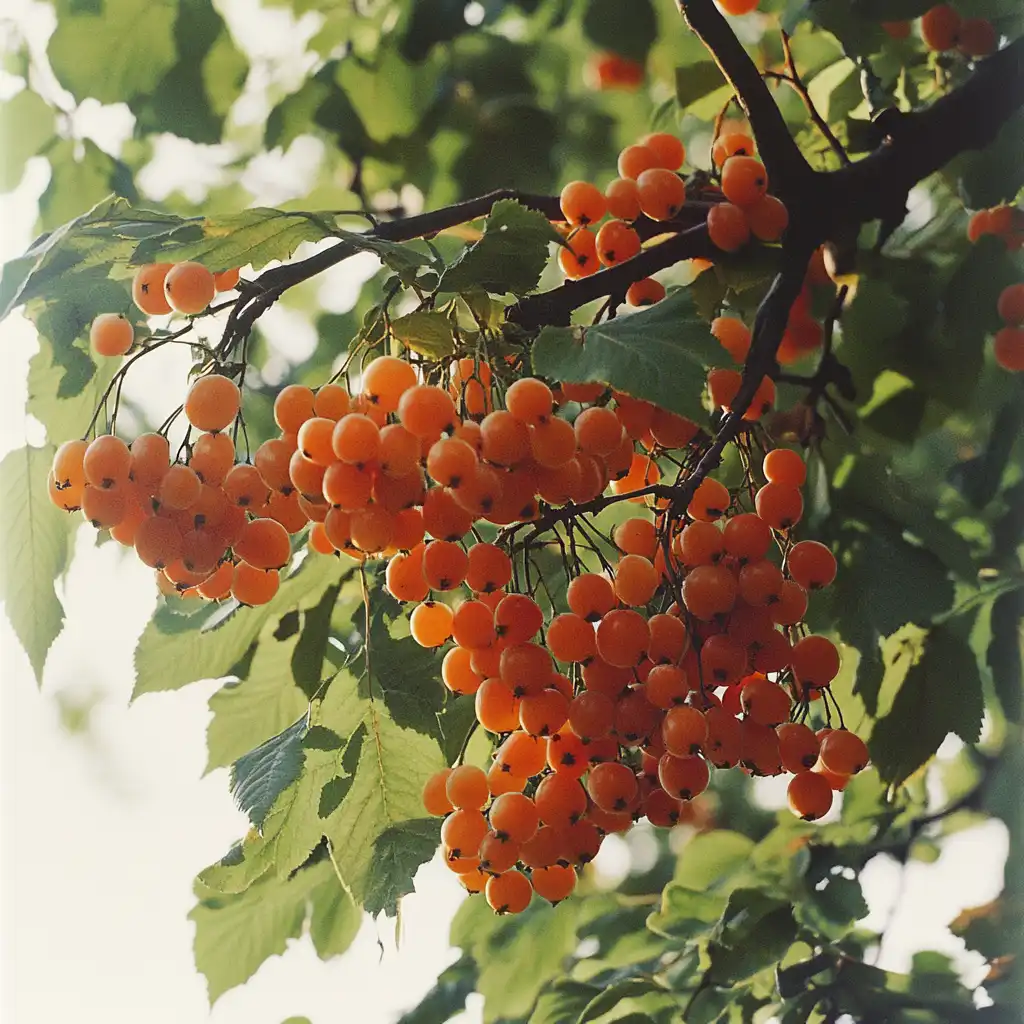
The American Mountain Ash offers a beautiful, multi-season approach to privacy. While technically not a true ash, this deciduous tree earns its name with feathered foliage and a stately form that brings grace to any property line.
Rising to a mature height of 15–30 feet, it provides generous coverage above most fences, especially when planted in loose rows. In spring, it puts out clusters of white flowers, followed by brilliant red-orange berries in summer and golden fall foliage — a trifecta of color that delights homeowners and wildlife alike.
It’s an especially good choice for cooler climates and pollinator-friendly gardens, attracting birds, bees, and beneficial insects. Just be aware that it prefers well-drained soil and might not thrive in high-heat regions.
Why it works as a privacy tree:
- Multi-season beauty: blooms, berries, and fall color
- Supports local bird and pollinator populations
- Light, airy canopy softens hardscapes without total shading
Quick Stats:
- Sunlight: Full sun to partial shade
- USDA Zones: 2–6
- Mature Size: 15–30 ft. tall, up to 20 ft. wide
- Growth Rate: Moderate
🌳 7. Crepe Myrtle (Lagerstroemia indica)
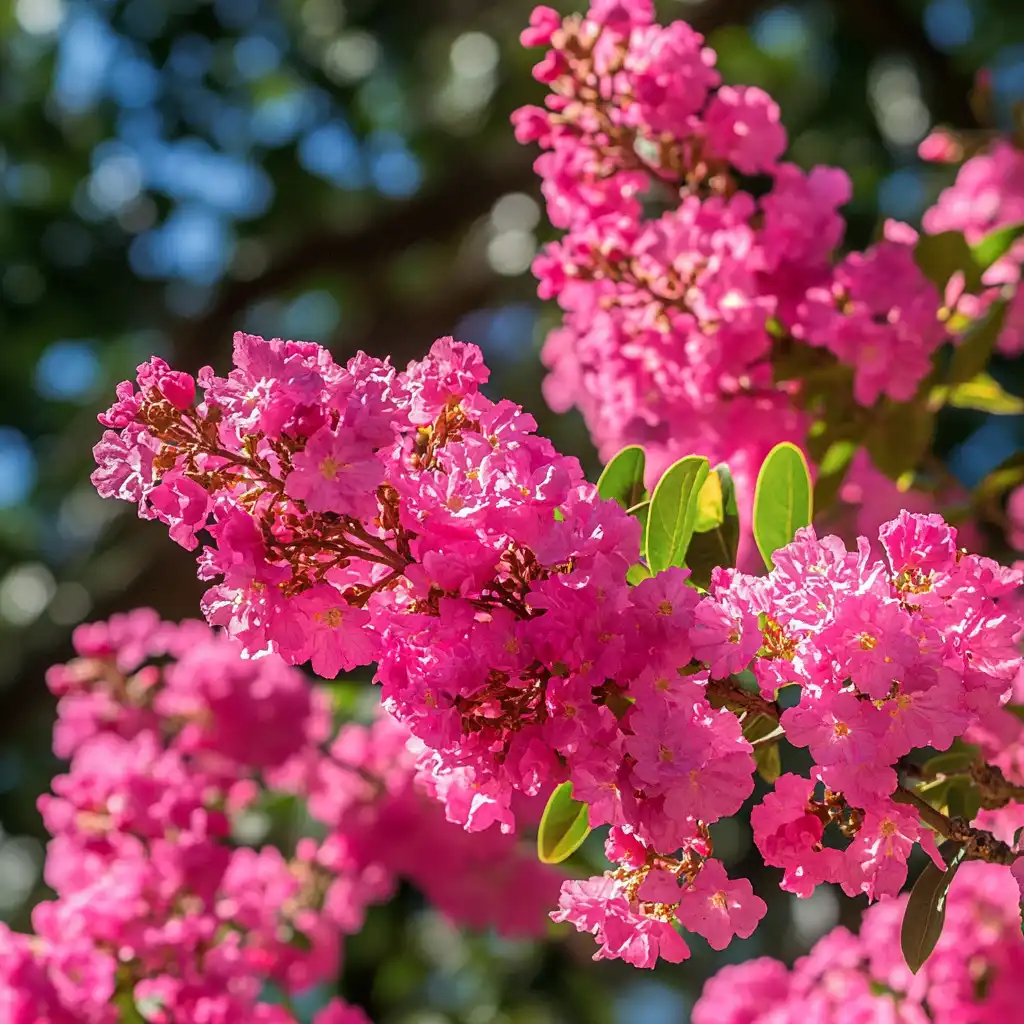
Known for its show-stopping summer blooms, the Crepe Myrtle offers far more than just good looks — it also functions as an excellent above-fence privacy tree, especially when you choose a tall variety like ‘Natchez’.
This deciduous beauty grows anywhere from 6 to 25 feet tall, with a wide, branching canopy that creates soft screening from midsummer through fall. Its fragrant flowers come in shades of white, pink, purple, and red, and are followed by vibrant autumn leaves and exfoliating bark for year-round interest.
Crepe Myrtles thrive in full sun and tolerate drought once established, making them a low-maintenance solution for privacy that doubles as a garden feature. For privacy purposes, go with larger cultivars and plant them about 10 to 12 feet apart along your fence.
Why it works as a privacy tree:
- Tall flowering varieties create colorful seasonal screens
- Fast-growing with minimal upkeep
- Attractive bark and fall foliage add year-round charm
Quick Stats:
- Sunlight: Full sun
- USDA Zones: 6–9
- Mature Size: 6–25 ft. tall, 6–20 ft. wide
- Growth Rate: Fast
🌳 8. Little Gem Magnolia (Magnolia grandiflorum ‘Little Gem’)
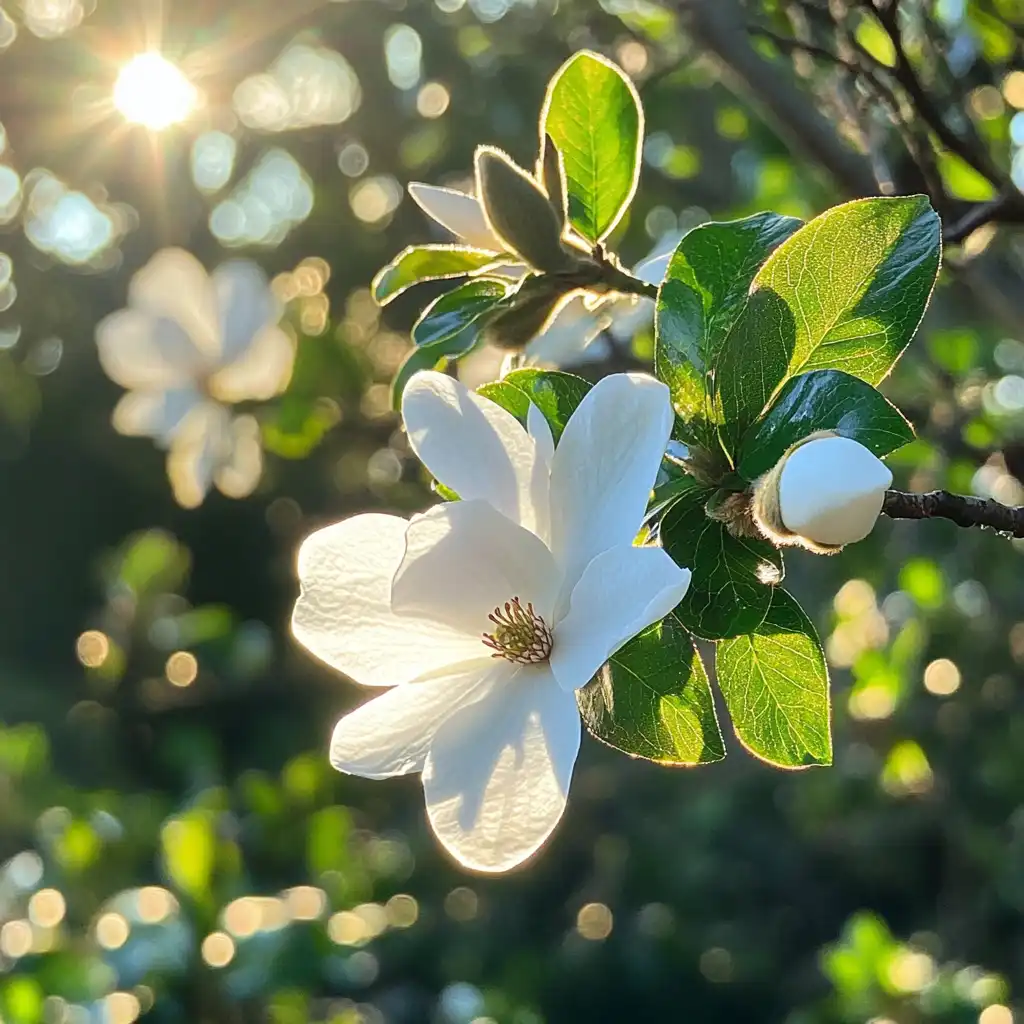
If you love the timeless beauty of Southern magnolias but don’t have room for a towering tree, the Little Gem Magnolia is your perfect solution. This compact evergreen offers fragrant white blooms, glossy dark green leaves, and a dense structure that makes it a stylish and practical privacy tree.
Maturing at 15–20 feet tall, it’s ideal for planting along fences or property lines where you want to add greenery and sophistication year-round. Its tight, upright growth habit makes it suitable even for narrow spaces, and its broadleaf evergreen foliage ensures a lush screen even in winter.
Little Gem blooms at a young age and continues flowering over an extended season — often late spring through summer — adding fragrance and elegance to your backyard retreat.
Why it works as a privacy tree:
- Evergreen with a dense, upright form
- Fragrant flowers and glossy foliage for ornamental appeal
- Compact size fits small yards and fence borders
Quick Stats:
- Sunlight: Full sun to light shade
- USDA Zones: 6–10
- Mature Size: 15–20 ft. tall, 7–10 ft. wide
- Growth Rate: Moderate
🌳 9. Young’s Weeping Birch (Betula pendula ‘Youngii’)
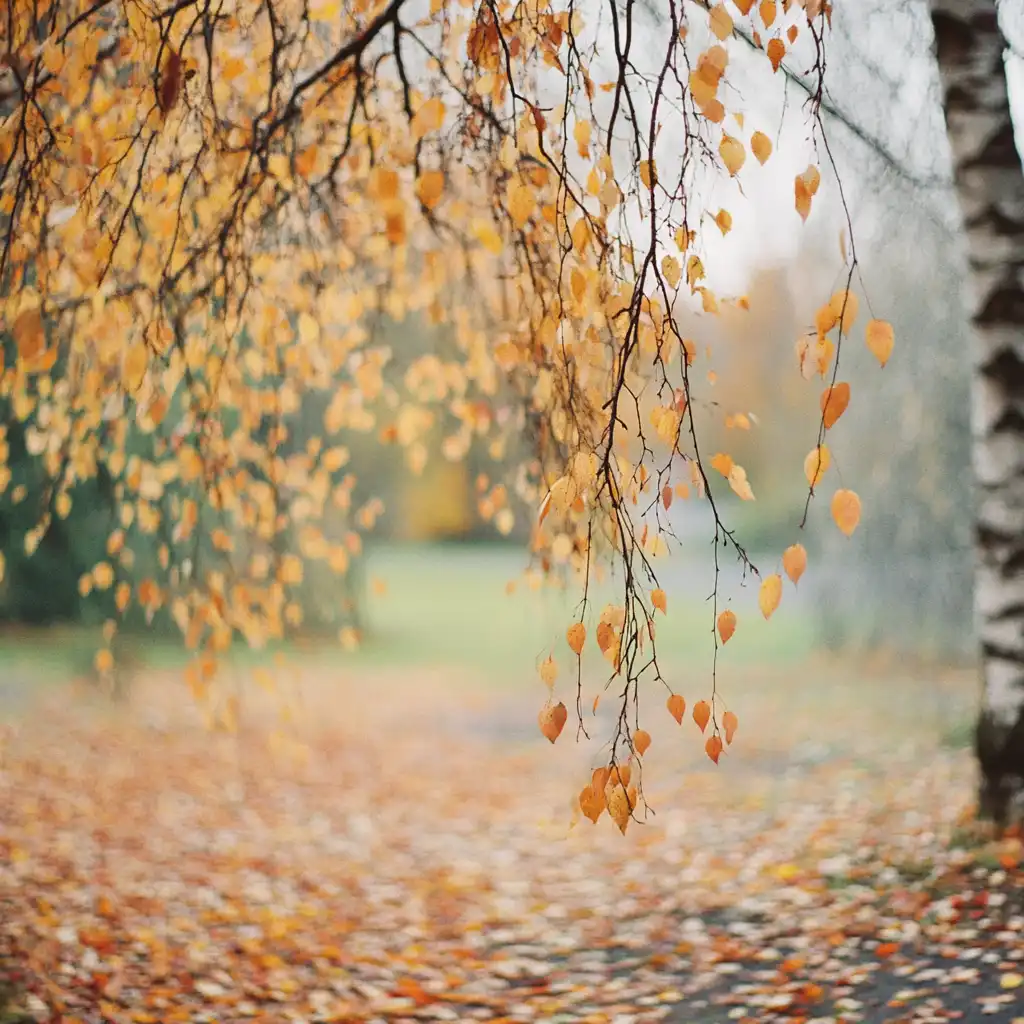
If you’re after a tree that combines privacy with elegance, Young’s Weeping Birch is a stunning pick. Known for its graceful, trailing branches and iconic white bark, this ornamental tree softens the look of fencing while offering partial visual screening.
Although smaller than some privacy trees — reaching just 6 to 12 feet tall — its cascading form and brilliant yellow fall foliage create a layered, flowing aesthetic. It works especially well when planted in groupings or paired with evergreen shrubs to enhance coverage.
This tree is an excellent fit for decorative privacy, particularly in cottage or woodland-style gardens. Its silhouette is striking against stone or brick walls and adds a unique vertical element without dominating the space.
Why it works as a privacy tree:
- Graceful weeping form adds movement and visual interest
- Bright yellow fall color enhances seasonal appeal
- Ideal for layering with taller trees or hedges
Quick Stats:
- Sunlight: Full sun to partial sun
- USDA Zones: 3–9
- Mature Size: 6–12 ft. tall, 8–15 ft. wide
- Growth Rate: Moderate
🌳 10. Arborvitae ‘Emerald Green’ (Thuja occidentalis)
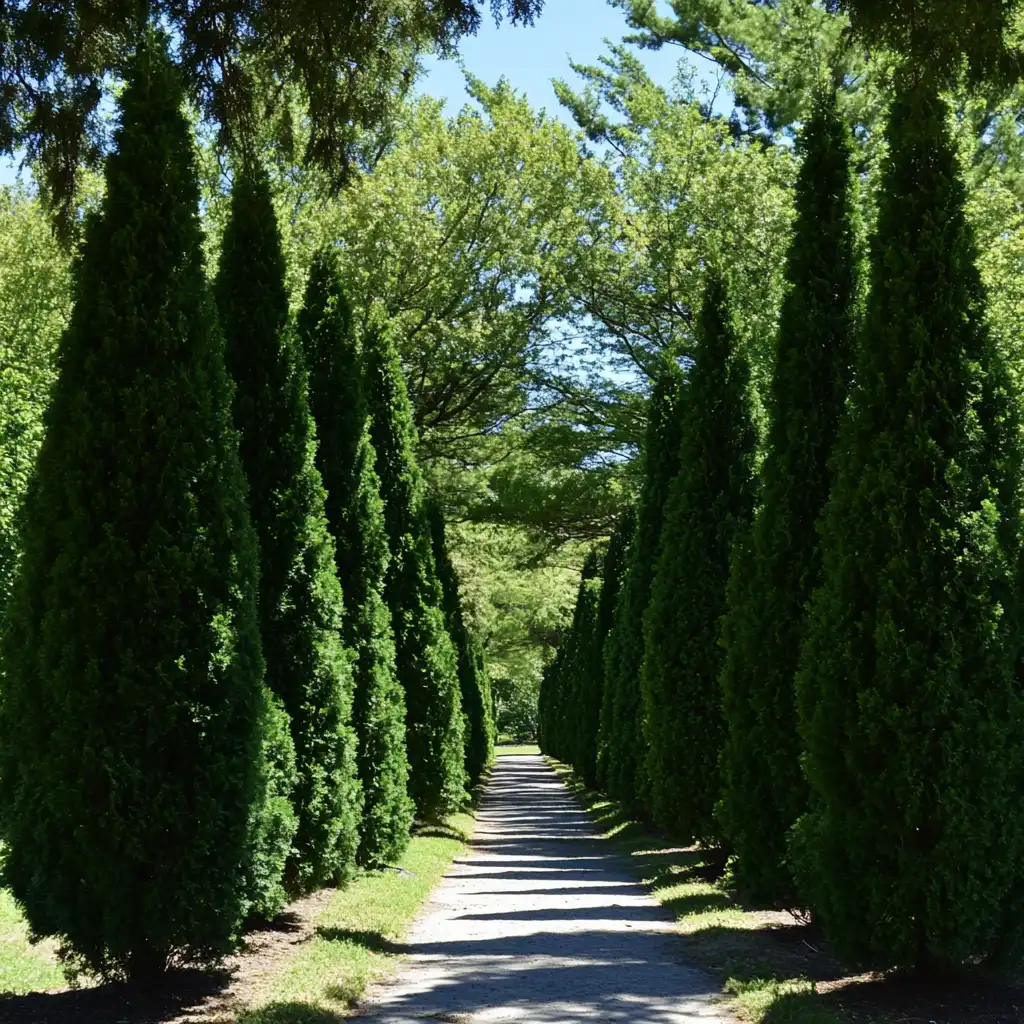
When homeowners think “privacy tree,” Emerald Green Arborvitae often tops the list — and for good reason. This narrow, upright evergreen offers a sleek, formal look and creates an instant living privacy wall when planted in a row.
Reaching 12 to 20 feet in height with a compact 3 to 5-foot spread, it’s ideal for tight spaces and small urban lots. Its lush, glossy green needles hold their color year-round, requiring little pruning to maintain a clean, uniform shape. Plus, it grows fast enough to be practical, but not so fast that it becomes unmanageable.
Arborvitae thrives in full sun and well-drained soil, and it’s hardy in colder climates, making it a versatile option across many U.S. zones. Whether you’re screening a fence, patio, or pool area, Emerald Green provides an elegant solution with minimal maintenance.
Why it works as a privacy tree:
- Tall, slender shape fits narrow yards or fence lines
- Year-round privacy thanks to dense evergreen foliage
- Easily maintained and widely available
Quick Stats:
- Sunlight: Full sun to partial sun
- USDA Zones: 2–7
- Mature Size: 12–20 ft. tall, 3–5 ft. wide
- Growth Rate: Moderate
🌳 11. Skip Laurel (Prunus laurocerasus)
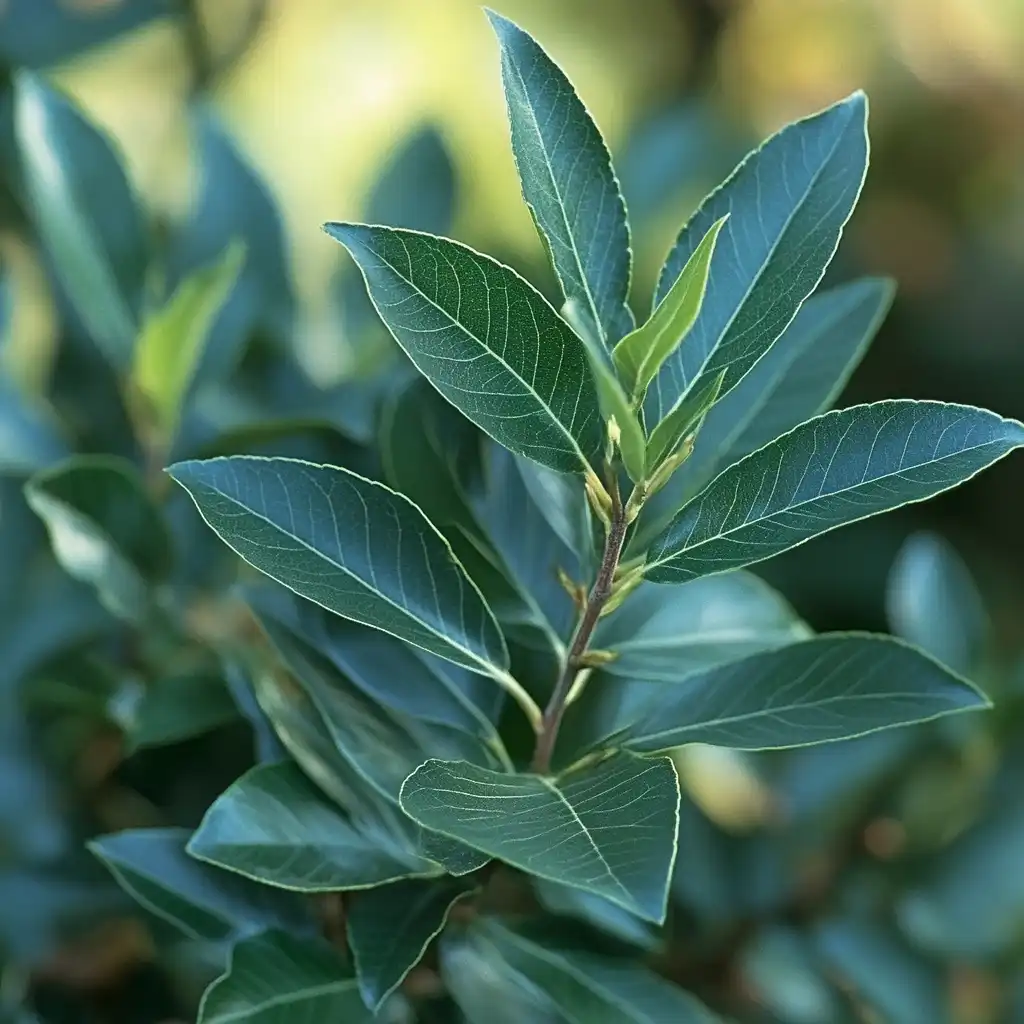
Also known as Cherry Laurel, the Skip Laurel is an all-star evergreen when it comes to creating a dense, year-round privacy screen. With its glossy, dark green leaves, upright habit, and moderate growth rate, it’s well-suited for planting along fences and property lines where space is at a premium.
This tree grows to about 10 to 25 feet tall, depending on how it’s pruned, and forms a tidy hedge that offers both noise reduction and visual separation. In spring, you’ll enjoy fragrant white flower spikes, followed by red berries that draw in birds — though both foliage and fruit are toxic to pets and people.
Skip Laurel is ideal for urban and suburban gardens, thriving even in partial shade and tolerating pollution and compacted soil. It’s also one of the best privacy trees for sloped or uneven terrain due to its flexible root system.
Why it works as a privacy tree:
- Dense evergreen foliage provides consistent coverage
- Tolerates pruning and shapes well into hedges
- Spring flowers and bird-friendly berries add seasonal interest
Quick Stats:
- Sunlight: Full sun to part shade
- USDA Zones: 4–9
- Mature Size: 10–25 ft. tall, 5–10 ft. wide
- Growth Rate: Moderate
🌳 12. Spartan Juniper (Juniperus chinensis ‘Spartan’)

If you’re working with a narrow space but want maximum height and privacy, the Spartan Juniper is an excellent pick. With its upright, pyramidal shape and tidy appearance, this fast-growing evergreen offers an almost architectural element to your garden or fence line.
Maturing at around 15 feet tall with a slim 3–5 foot spread, Spartan Juniper makes a great living wall when planted in rows. It’s also drought-tolerant, salt-resistant, and thrives in poor or rocky soils — making it one of the most resilient privacy trees for challenging sites.
This tree requires very little pruning and naturally maintains its narrow shape. It’s particularly well-suited to modern landscapes, small backyards, and windbreaks in open areas.
Why it works as a privacy tree:
- Naturally narrow and tall for tight fence lines
- Tolerates drought, salt, and tough conditions
- Low maintenance with year-round color
Quick Stats:
- Sunlight: Full sun to partial shade
- USDA Zones: 5–9
- Mature Size: 15 ft. tall, 3–5 ft. wide
- Growth Rate: Fast
🌳 13. Dwarf Italian Cypress (Cupressus sempervirens)
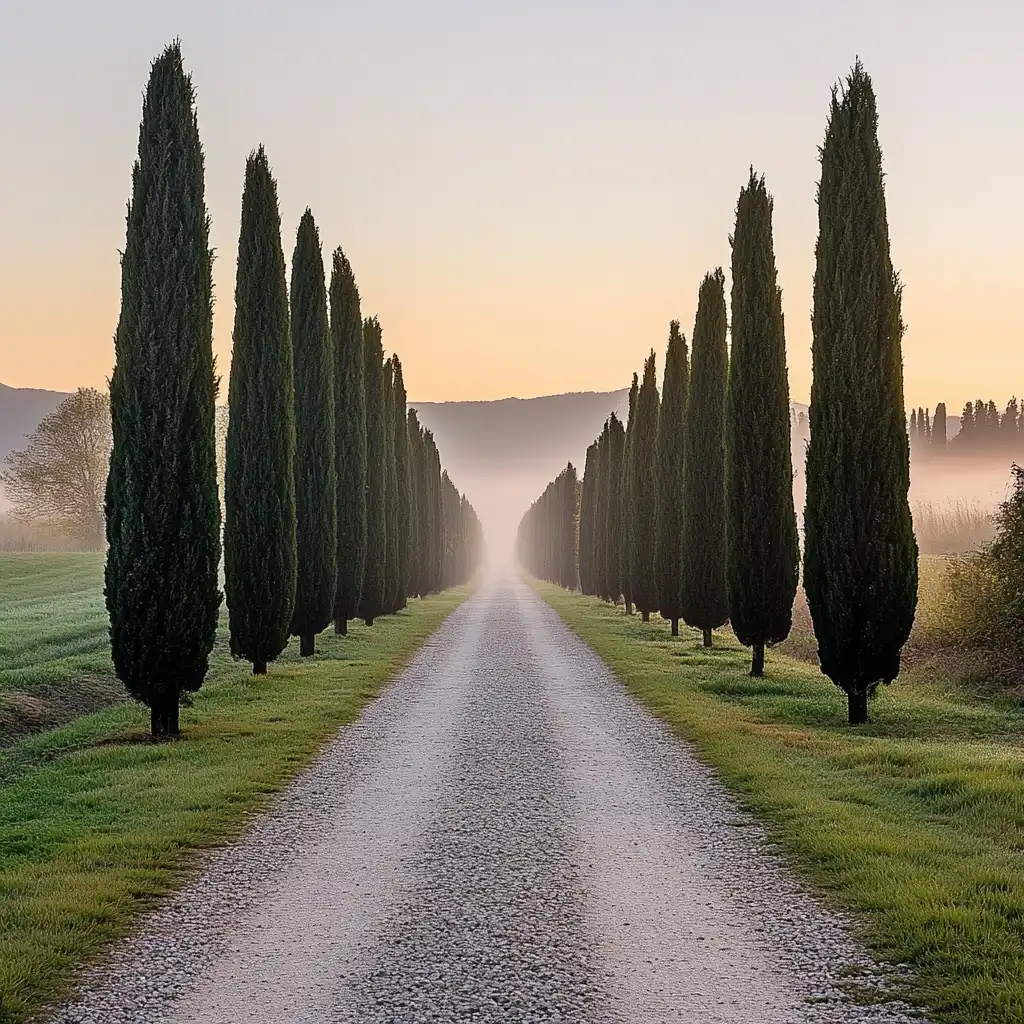
If you love clean lines and a sophisticated landscape, the Dwarf Italian Cypress delivers a tall, narrow silhouette that brings Mediterranean charm to any garden. With its tight, columnar form, this tree is ideal for flanking fences, driveways, or lining a long property edge where vertical screening is needed.
Reaching 10 to 30 feet tall but staying just 3 to 5 feet wide, it creates a stunning, space-efficient privacy screen — especially when planted in rows. Its blue-green needles remain vibrant all year long, and many dwarf cultivars (like ‘Tiny Tower’ or ‘Swane’s Golden’) offer varying hues and textures.
This cypress does best in warm, dry climates, and requires well-drained soil to prevent root rot. Once established, it’s drought-tolerant, making it a low-maintenance option for structured screening with a high-end feel.
Why it works as a privacy tree:
- Narrow form makes it perfect for tight urban yards
- Offers formal, sculptural beauty year-round
- Great for windbreaks, vertical accents, or lining tall fences
Quick Stats:
- Sunlight: Full sun to partial sun
- USDA Zones: 7–10
- Mature Size: 10–30 ft. tall, 3–5 ft. wide
- Growth Rate: Moderate
🌳 14. Dragon Lady Holly (Ilex × aquipernyi)
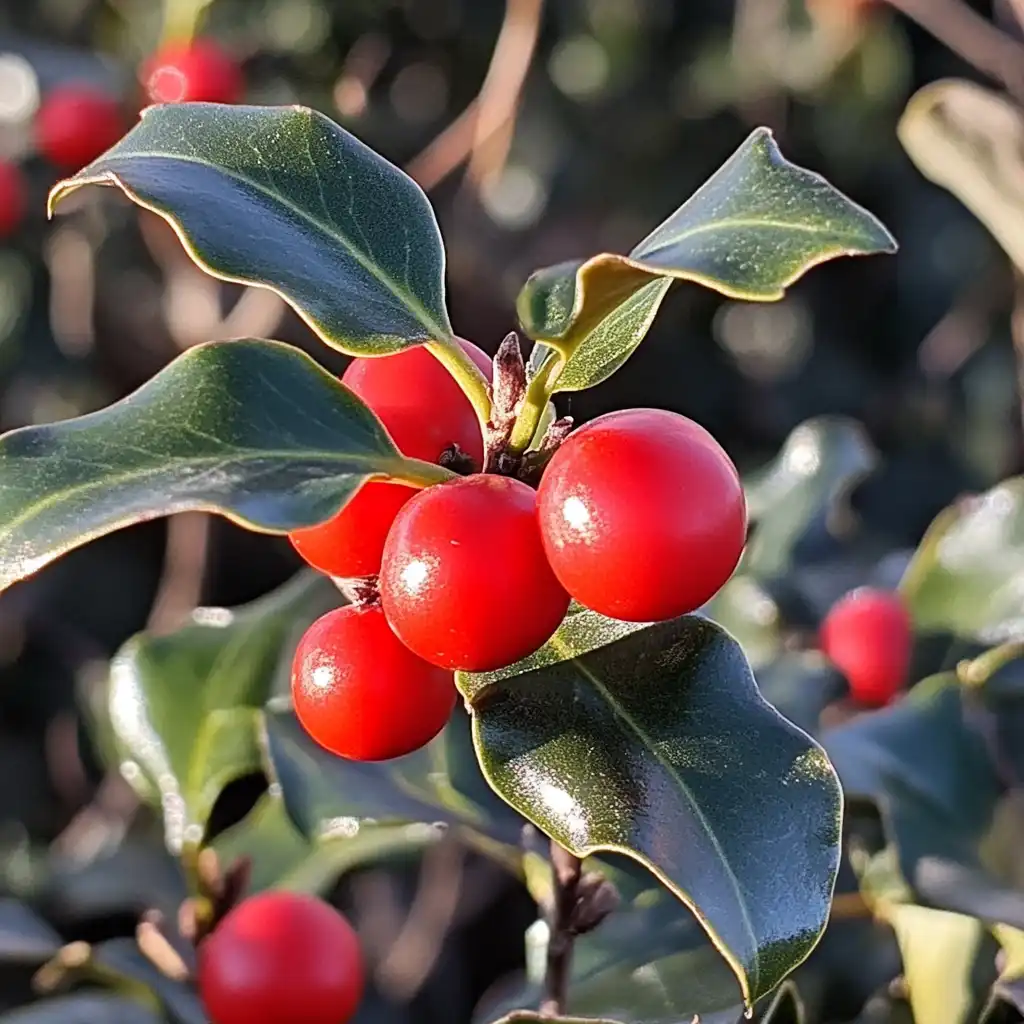
Looking for a hardy, upright evergreen that delivers dense coverage and seasonal interest? The Dragon Lady Holly fits the bill. With its deep green, glossy leaves and abundant red berries, this tree provides a classic look and reliable privacy throughout the year.
Topping out at 10 to 20 feet tall and just 4 to 6 feet wide, its naturally pyramidal shape makes it a perfect fit for narrow planting areas or along fence lines. Unlike sprawling trees, it won’t take over your yard — but it will block unwanted views with elegance.
For berry production (and pollinator appeal), you’ll need to plant both a female (Dragon Lady) and a male variety like ‘Blue Prince’. Once established, this holly is drought-tolerant, low-maintenance, and highly resistant to pests and disease.
Why it works as a privacy tree:
- Compact, columnar shape perfect for structured hedging
- Evergreen foliage with brilliant berries in fall and winter
- Wildlife-friendly, but berries are toxic to pets and people
Quick Stats:
- Sunlight: Full sun to partial shade
- USDA Zones: 5–7
- Mature Size: 10–20 ft. tall, 4–6 ft. wide
- Growth Rate: Moderate
🌳 15. Black Dragon Japanese Cedar (Cryptomeria ‘Black Dragon’)
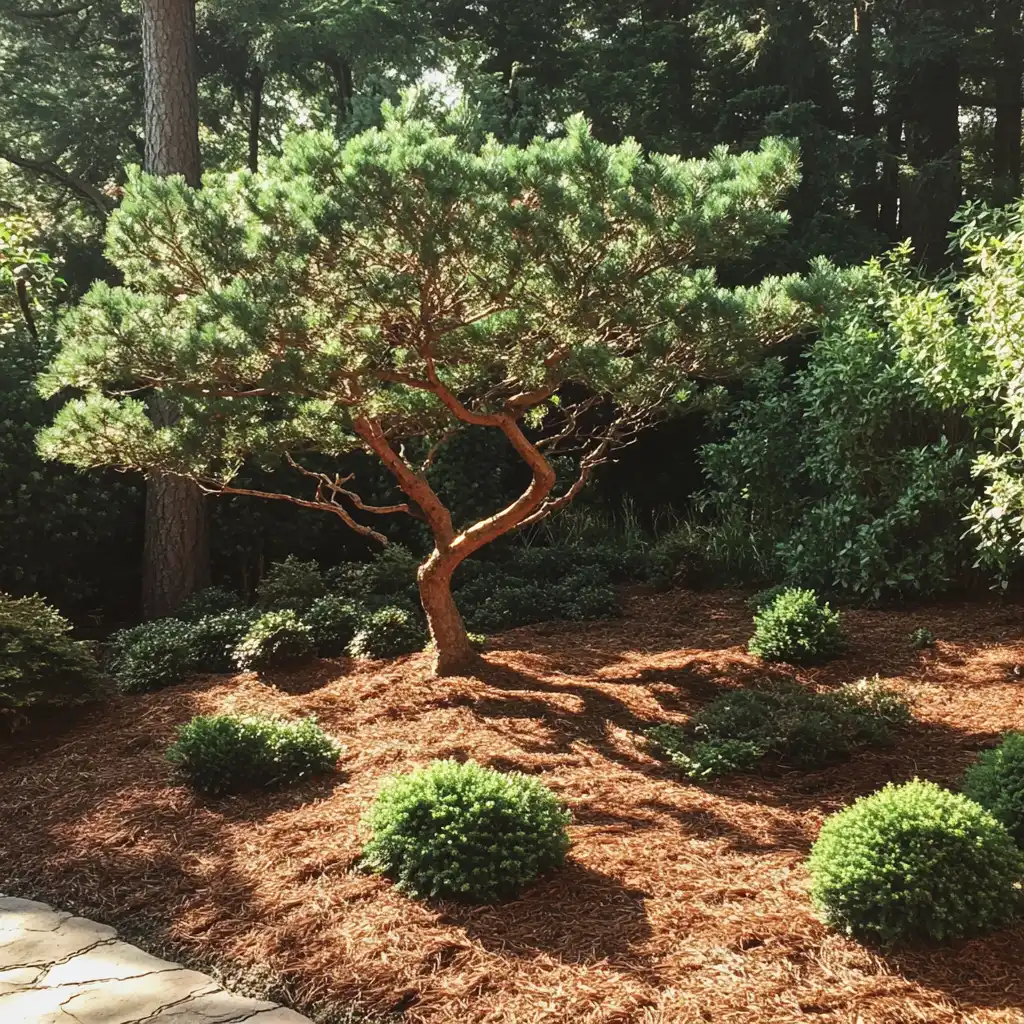
If you’re after something a little more dramatic and distinctive, the Black Dragon Japanese Cedar offers a moody, ornamental twist on privacy. This compact evergreen features dense, irregular branching and dark green to nearly black foliage — giving it a bold, sculptural presence in any garden.
Growing to just 6 to 10 feet tall, it’s not your typical privacy giant. But when planted in staggered groups or layered with taller trees, it adds rich contrast and depth to your screening design. It also makes an excellent foundation plant near fences or corners where visual interest is needed.
This cultivar is low-maintenance, pest-resistant, and highly adaptable to different soils and light conditions. It thrives in full to partial sun and is a great option for gardeners looking to mix privacy with ornamental flair.
Why it works as a privacy tree:
- Compact size works well in mixed screens or layered plantings
- Unique dark foliage adds drama and contrast
- Evergreen and low maintenance for year-round appeal
Quick Stats:
- Sunlight: Full sun to partial shade
- USDA Zones: 5–9
- Mature Size: 6–10 ft. tall, 4–6 ft. wide
- Growth Rate: Slow to moderate
🌳 16. Viburnum (Viburnum spp.)
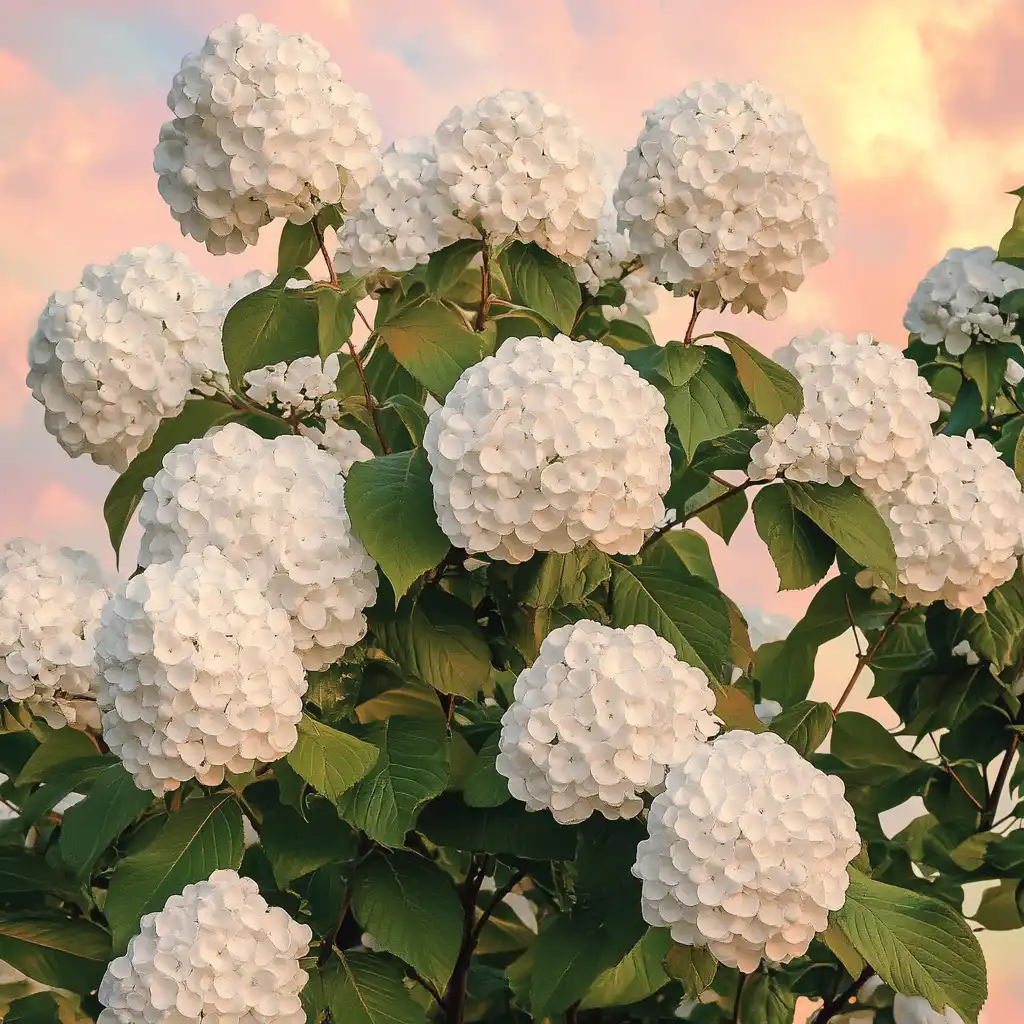
Few plants offer as much flexibility for privacy landscaping as Viburnum. With both evergreen and deciduous varieties, this group of shrubs and small trees can be tailored to suit nearly any garden style, fence height, or climate zone.
Depending on the species, Viburnums range from 3 to 20 feet tall, making them perfect for layered screens, informal hedges, or mixed borders along a fence. Many varieties produce showy clusters of white or pink flowers in spring and early summer, followed by bright berries and even fall color in deciduous types.
They’re also pollinator-friendly, drawing in bees and butterflies with their blooms. And once established, Viburnums are low-maintenance, deer-resistant, and able to tolerate a wide range of soils and light conditions.
Why it works as a privacy tree:
- Available in many heights, forms, and foliage types
- Blooms, berries, and fall color add seasonal variety
- Some species are evergreen for year-round screening
Quick Stats:
- Sunlight: Full sun to partial shade
- USDA Zones: 2–9 (varies by species)
- Mature Size: 3–20 ft. tall, 4–12 ft. wide
- Growth Rate: Moderate
🌳 17. Fragrant Tea Olive (Osmanthus fragrans)
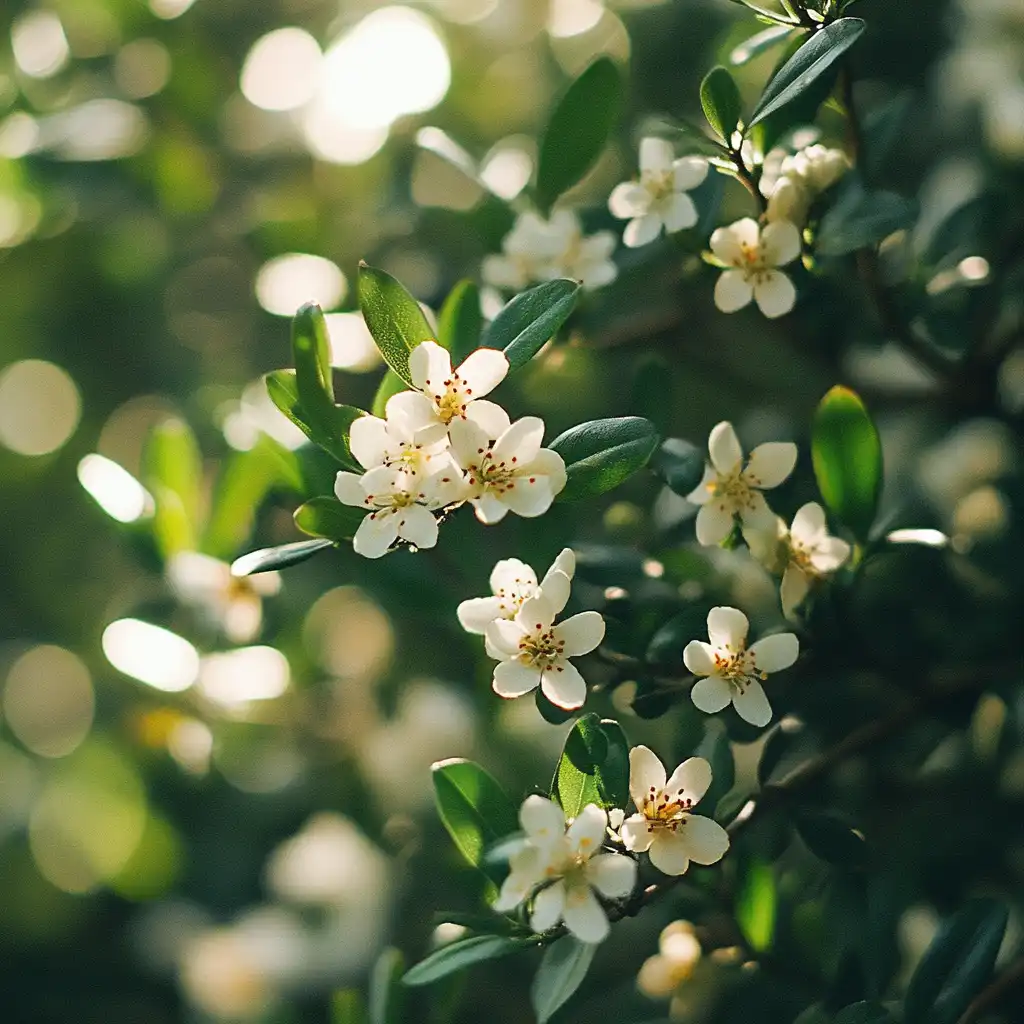
The Fragrant Tea Olive is a standout choice for gardeners who want privacy with perfume. This broadleaf evergreen produces small white to yellowish flowers with a powerful, sweet scent — often compared to jasmine, orange blossoms, or ripe peaches.
With a mature height of 20 to 30 feet, it’s well-suited for planting along fence lines where taller screening is needed. It grows slowly, but its dense foliage and multi-stemmed structure create an effective natural barrier once established. In warmer regions, it keeps its deep green leaves year-round, offering both privacy and color in all seasons.
Though it’s slow-growing (around 4 inches to 1 foot per year), the payoff is worth it for gardeners who value fragrance, form, and low maintenance. This tree prefers full to partial sun and well-drained soil, thriving in USDA zones 8 to 11.
Why it works as a privacy tree:
- Highly fragrant flowers bloom several times a year
- Evergreen foliage forms a lush, dense screen
- Great for warm climates and low-traffic zones
Quick Stats:
- Sunlight: Full to partial sun
- USDA Zones: 8–11
- Mature Size: 20–30 ft. tall, 6–10 ft. wide
- Growth Rate: Slow
🌱 Tips for Choosing and Planting Privacy Trees
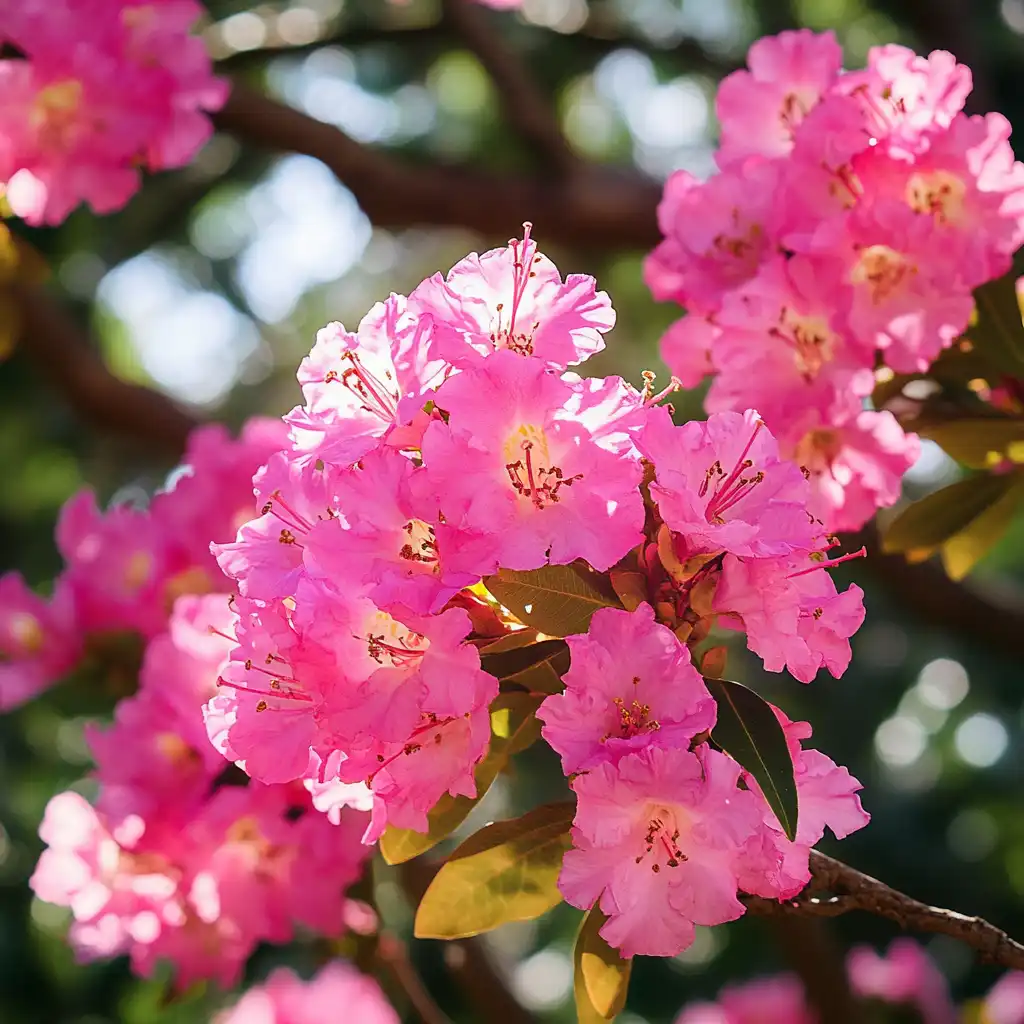
Selecting the right privacy trees for your yard isn’t just about picking what looks good — it’s about finding the perfect match for your space, lifestyle, and long-term goals. Here are key considerations to guide your planting decisions:
📏 1. Mind the Mature Size
- Always research the mature height and width of a tree before planting.
- Plant trees at least as far from your fence as their expected mature spread to prevent crowding or structural issues.
- Consider root systems and ensure you’re not planting too close to foundations, driveways, or underground utilities.
🧱 2. Evergreen vs. Deciduous: What’s Your Goal?
- Evergreens like Arborvitae, Magnolia, and Juniper provide year-round privacy and are ideal for permanent screens.
- Deciduous trees (like Flowering Cherry or Crabapple) offer seasonal beauty, shade in summer, and sunlight in winter — great for balancing privacy with visual interest.
🌸 3. Think About Maintenance
- Choose trees based on how much time and effort you can commit to pruning, cleanup, and care.
- Avoid fruiting trees near patios, driveways, or high-traffic areas to minimize mess.
- Opt for pest- and disease-resistant varieties to reduce chemical use and upkeep.
🐝 4. Support Pollinators and Wildlife
- Trees like Crabapple, Mountain Ash, and Viburnum provide food and shelter for birds, bees, and butterflies.
- Incorporating pollinator-friendly plants helps your privacy screen double as a mini-ecosystem.
🧑🌾 5. Work with Your Environment
- Check your USDA hardiness zone, soil type, and light exposure before making a selection.
- If you have overhead wires or live near property lines, select slimmer trees or dwarf cultivars to avoid future conflicts.
❓ Frequently Asked Questions (FAQ)
🌳 What are the best privacy trees for small yards?
For compact spaces, consider narrow or dwarf varieties like Spartan Juniper, Emerald Green Arborvitae, or Dwarf Italian Cypress. These trees offer vertical growth without taking up too much horizontal space, making them ideal for privacy in small yards.
⏱️ What are the fastest-growing privacy trees?
Some of the best privacy trees for your yard that grow quickly include Crepe Myrtle, Spartan Juniper, and certain types of Arborvitae. These can add several feet of height each year when planted in the right conditions.
🌿 Should I choose evergreen or deciduous trees for privacy?
Evergreens provide year-round screening, making them great for full privacy throughout all seasons. Deciduous trees offer more seasonal interest — with flowers, fall color, and shade — but they lose their leaves in winter, reducing their screening effect.
🐾 Are privacy trees safe for pets?
Some privacy trees, like Red Buckeye, Cherry Laurel, and Purpleleaf Plum, are toxic to pets and humans. Always research a tree’s toxicity before planting, especially if you have dogs, cats, or small children who might chew on leaves or berries.
🛠️ How far apart should I plant privacy trees?
A general rule is to plant trees as far apart as their mature spread. For example, if a tree’s mature width is 10 feet, space it about 10 feet from the next one for a full, seamless screen.
author:🌿 Conclusion
Whether you’re creating a secluded backyard oasis, shielding your home from prying eyes, or simply enhancing the beauty of your landscape, the right privacy trees for your yard can make all the difference. From fast-growing evergreens to flowering showstoppers, there’s a perfect tree for every space, style, and climate.
As you plan your living fence, consider the tree’s growth habits, maintenance needs, and compatibility with your space. With thoughtful selection and planting, you’ll enjoy a lush, natural screen that offers not only privacy — but beauty, fragrance, and life.
🌿 Love gardening inspiration? Follow me on Pinterest for bold plant ideas, tips, and seasonal color!
More Posts
